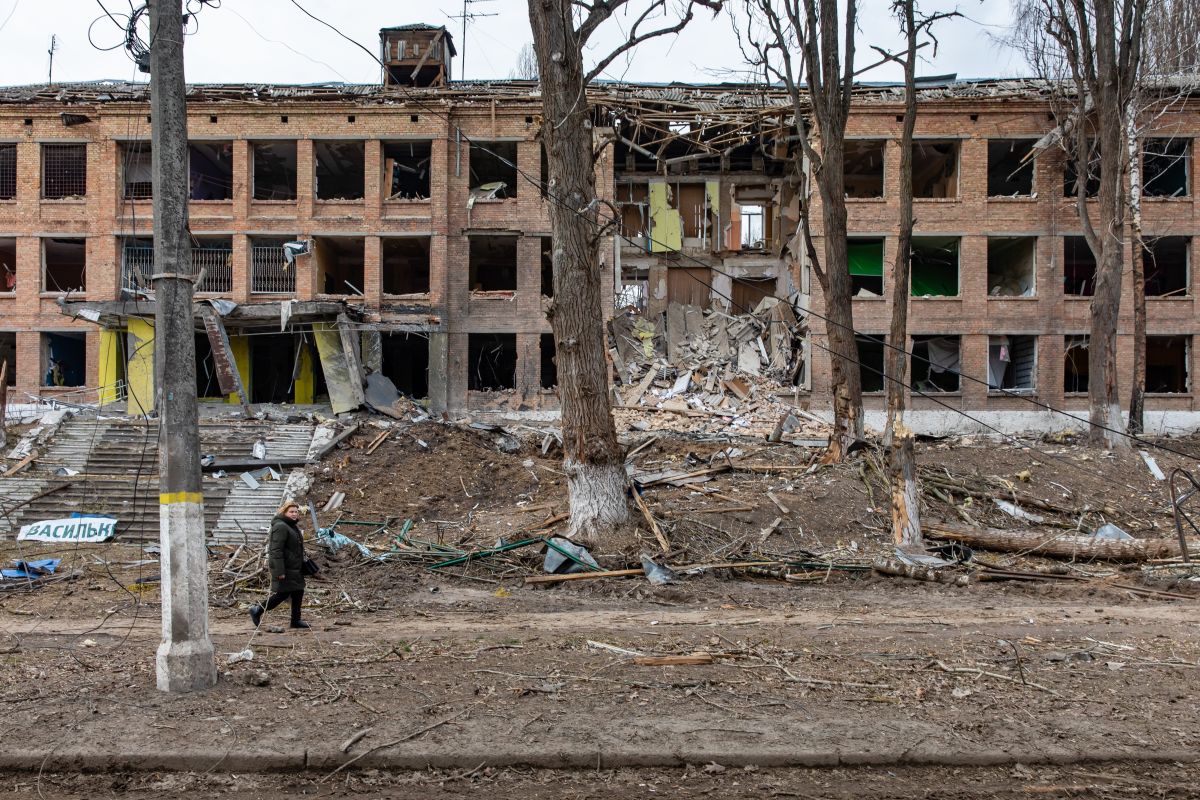The Price of Neutrality - Israel's Response to Russia's Invasion of Ukraine
Israel’s stance on Russia’s latest aggression against Ukraine remains cautious. The Israeli government is providing political support to Ukraine, focusing on humanitarian aid and assistance for the Jewish population, but avoids directly condemning Russia. Israel’s neutral stance may allow it to play a mediating role but the effectiveness of these actions remains limited.
 Fot. Mykhaylo Palinchak/Zuma Press/Forum
Fot. Mykhaylo Palinchak/Zuma Press/Forum
What influences Israel’s position?
Israel has been neutral with respect to the conflict in Ukraine since 2014. The justification was not wanting to antagonise Russia because of its military presence in Syria. An agreement reached with Russia by the previous Israeli authorities enabled Israel to attack targets in Syria, including Iranian forces or arms shipments to Hezbollah. The Israeli government is concerned that deeper involvement and more support for Ukraine and its allies will lead to a change in Russia’s attitude to the agreement and prevent Israeli operations against regional threats. Israel, both before and after the Russian invasion, justified its cautious policy through concerns for the security of the Jewish population and its own citizens present in Ukraine and Russia. It also has drawn attention to the possible regional consequences of Russian aggression, particularly the intensification of Russia’s military activity in Syria and in the Mediterranean Sea, problems related to supply chains (e.g., grain) or the destabilisation of markets in the Middle East. An additional reason for Israel to refrain from condemning Russia is the latter’s participation in the negotiations on restoring the denuclearisation agreement with Iran, which is opposed by Israel.
What course of action has Israel pursued?
Foreign Minister Yair Lapid condemned Russia’s aggression and supported the sovereignty and territorial integrity of Ukraine (Israel also voted for the recent UN General Assembly resolution). Despite this, the Israeli leadership has shown restraint in their criticism of Russia. This is evident in, for example, the weak criticism of the use of references to World War II and the Holocaust in Russian propaganda. Israel has not joined the sanctions being introduced against Russia and decided not to provide arms to the Ukrainians. In the diplomatic sphere, Israel has offered mediation (last year and prior to the invasion, Ukraine asked the Israeli authorities for help in this area). Prime Minister Naftali Bennett is one of the few leaders who remain in constant contact with both President Volodymyr Zelensky and Vladimir Putin. He met the Russian leader in Moscow on 5 March, and the visit was then discussed with the leaders of Ukraine, Germany, and France. In its direct actions, Israel focuses on providing humanitarian aid to Ukraine (e.g., a field hospital) and providing support (e.g., material resources) to the Jewish population and to its citizens still in the conflict zone. Since the outbreak of the war, Israel has received about 3,000 citizens of Ukraine (including Ukrainian Jews determined to immigrate permanently). In total in Israel there are about 26,000 Ukrainians who do not have Israeli citizenship.
What is the position of the Israeli public and the opposition to the Russian invasion?
The first polls show broad support for Ukraine in Israeli society. Among the Jewish population it stands at 75%, with 10% backing Russia. Similar results were recorded among the population of the around 1 million Russian-speaking Israelis, although the support among the Arab population is 41% and 35%, respectively. The conflict has not increased tensions within Israeli society between, for example, citizens born in Ukraine or Russia. The government’s policy towards the conflict is supported by about 54% of Israelis.
At the same time, the Israeli government’s stance and actions are criticised by the opposition. The main accusations, made by, among others, former Prime Minister Benjamin Netanyahu, are that the government lacks focus on the main strategic challenge for Israel, which is Iran and its policy and the imminent prospect of the reactivation of the JCPOA. The Israeli authorities fear that in the face of the war in Ukraine, the U.S. desire to finalise the talks quickly will result in serious concessions in favour of Iran, which in Israel’s view, would lead to an increased Iranian presence in Syria and support for regional armed groups, among other consequences.
Is it possible Israel may change its position or policy?
Israel’s concerns about the restriction of operational freedom in Syria against Iran and its proxies remains the most important determinant of its policy towards Russia. Israel will try to maintain its current strategy focusing on humanitarian aid, as well as prepare to absorb the expected migration of Jews leaving Ukraine and Russia (more than 10,000 additional people are expected to come). The Israeli government will continue its mediation activities, but there is a risk that Russia will use them instrumentally (to stall the talks) and as justification for Israel to avoid deeper involvement. As the Russian attacks inside Ukraine continue, the pressure and criticism from Ukraine and its allies on Israel and their demands that it abandon its current position will increase. Maintaining a protective attitude towards Russia could affect Israel’s image as a major non-NATO ally. Therefore, Israel may take additional measures against Russia in the near future, but first in areas that directly affect it (such as blocking attempts by Russian oligarchs to use the country to bypass Western sanctions).


